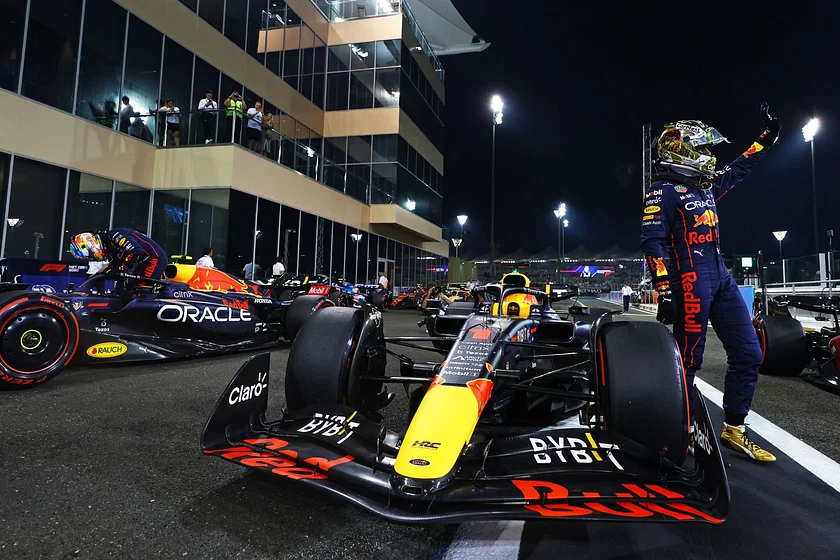Imagine you are a Formula One driver who has worked incredible hard for an F1 Pole Position. You have pushed yourself and your car to the limit, risking everything for a fraction of a second. And now, you have done it. You have set the fastest lap in qualifying. You have earned pole position.
But pole position is not the end of the story. It is only the beginning. It is not enough to be fast in qualifying. You have to be fast in the race. defended defend your position, fend off your rivals, cope with changing conditions, avoid mistakes, overcome problems. You have to prove yourself again and again, lap after lap, until you see the chequered flag.
Pole position is not a guarantee of victory, but it is a great advantage. It gives you a clear track ahead, a better chance of avoiding trouble, a greater control of the pace. It also gives you a psychological edge over your rivals, as you have shown them who is the boss.
Pole position is one of the most coveted achievements in Formula One, the highest class of open-wheeled auto racing. But what does it mean, how is it decided, and how important is it for winning a race? In this article, we will answer these questions and more.
What is An F1 Pole Position?
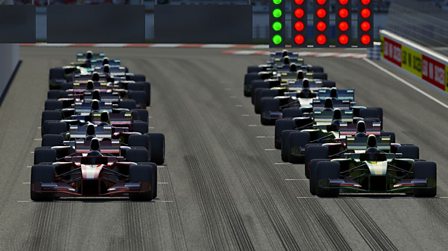
An F1 Pole position is the first place on the starting grid of a Grand Prix. It is usually determined by the qualifying session.
This takes place on the Saturday before the race (except for some events where a sprint race is held). If there is a sprint race qualifying takes place on Friday
The qualifying session consists of three rounds, known as Q1, Q2 and Q3. In each round, the drivers run laps to set their best times. The slowest ten drivers are eliminated after Q1 and Q2. This leaves the top ten drivers to compete for pole position in Q3.
Pole position gives the driver an advantage over the rest of the field, as they have a clear track ahead and can avoid traffic and collisions. It also gives a clear airflow enabling the cars aerodynamics and cooling systems to work optimally.
It also gives them a psychological edge over their rivals, as they have proven to be the fastest in qualifying.
How Important Is An F1 Pole Position?
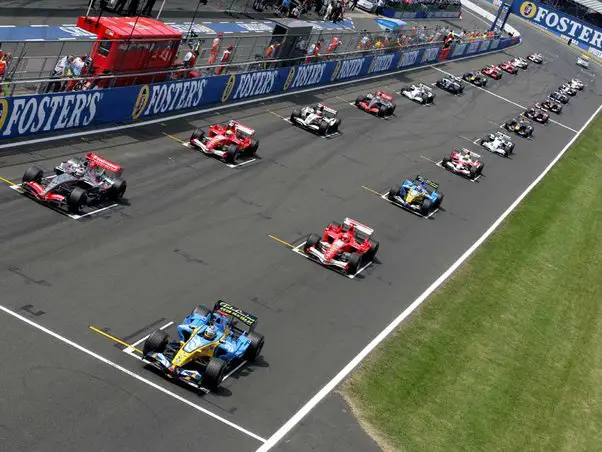
Pole position is not a guarantee of victory, but it certainly helps. Out of the 1,087 completed Grands Prix (as of the 2023 Canadian Grand Prix), the driver that has started in first has gone on to win the race 462 times.
That’s a win rate of about 42%.
However, pole position is not equally important at every circuit. Some tracks are more difficult to overtake on than others, making pole position more valuable. For example, at Monaco, where overtaking is almost impossible, pole position has led to victory 66% of the time.
Monza has opportunities for slipstreaming and braking zones means it had plenty of opportunities for passing. At this track pole position has only led to victory 38% of the time.
Other factors that can affect the importance of pole position are
- Weather conditions
- Tire strategies
- Safety cars
- Reliability issues
- Driver errors.
Sometimes, a driver can start from pole position and dominate the race from start to finish. Other times, they can lose their lead at the first corner or face unexpected challenges during the race.
Who Have Scored the Most F1 Pole Position in History?
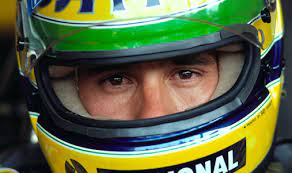

![Michael Schumacher [1994]](https://f1worldwide.com/wp-content/uploads/2023/06/Michael-Schumacher-1994-1024x576.jpeg)
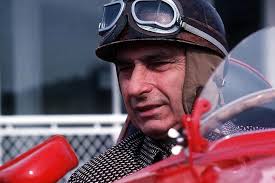
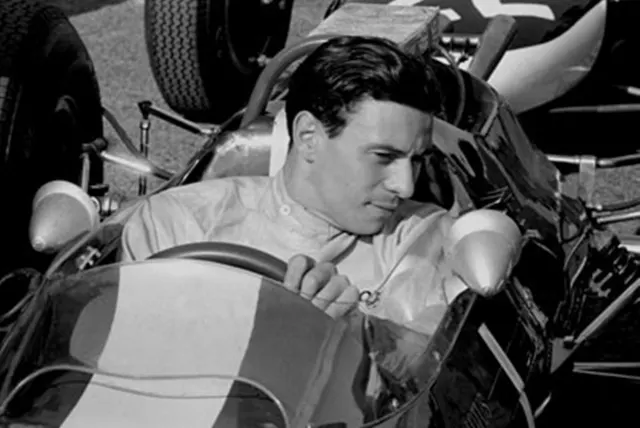
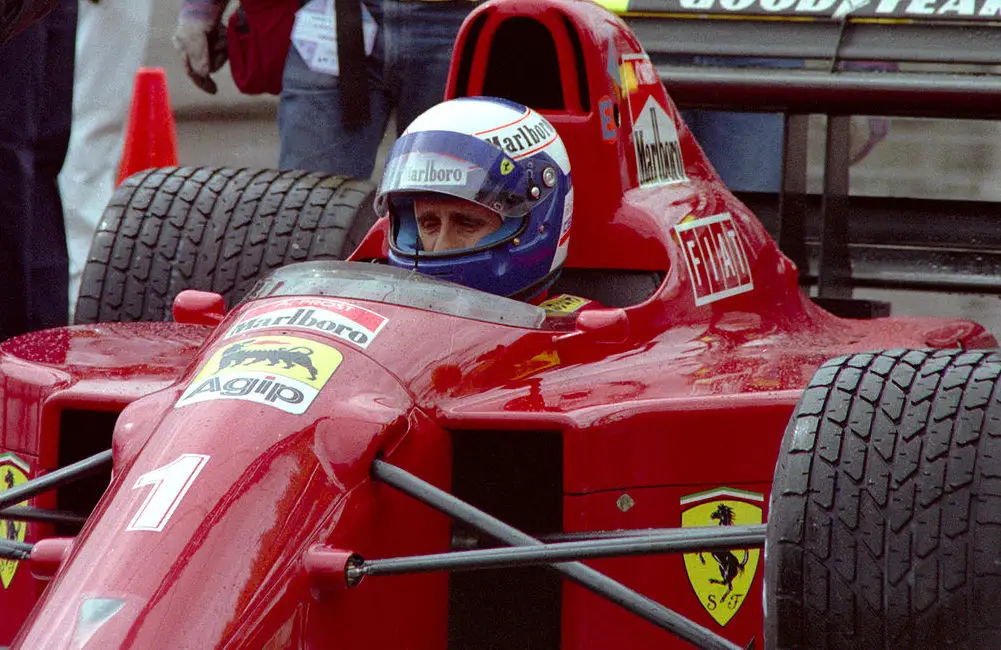
The record for the most pole positions in F1 history belongs to Lewis Hamilton, who has qualified first on 103 occasions. The seven-time world champion has shown remarkable speed and consistency throughout his career, especially since joining Mercedes in 2013.
The second place on the list goes to Michael Schumacher, who claimed 68 pole positions in his illustrious career. The German legend was known for his sheer pace and remarkable car control, as well as his ability to extract the maximum from his machinery.
He held the record for the most pole positions for over a decade before Hamilton broke it in 2017.
The third place on the list goes to Ayrton Senna, who achieved 65 pole positions in his relatively short career. The Brazilian icon was widely regarded as one of the fastest and most talented drivers ever to grace F1.
He also holds the record for the most consecutive pole positions; he qualified in first place in eight Grands Prix in a row from the 1988 Spanish Grand Prix to the 1989 United States Grand Prix.
Other notable polesitters in F1 history include
- Sebastian Vettel (57 poles)
- Jim Clark (33 poles)
- Alain Prost (33 poles)
- Juan Manuel Fangio (29 poles).
Vettel is also the youngest polesitter; he was 21 years, 72 days old when he qualified in first place for the 2008 Italian Grand Prix.
The oldest polesitter was Nino Farina, who was 47 years, 79 days old when he was on pole for the 1954 Argentine Grand Prix.
Who are the current polesitters in F1?
The current leader of pole positions in F1 is Max Verstappen, who has taken three poles in a row at the Austrian Grand Prix. The Dutch driver has been dominating the 2023 season with his Red Bull team-mate Sergio Perez, winning eight out of eight races so far.
Verstappen has shown impressive speed and control in both wet and dry conditions, as well as mastering the new sprint race format that was introduced this year.
The closest challenger to Verstappen’s pole position streak is Carlos Sainz, who qualified second for the sprint race at the Austrian Grand Prix. The Spanish driver has been performing well with Ferrari, scoring two podiums and consistently outpacing his team-mate Charles Leclerc.
Sainz has also shown his versatility and adaptability in changing weather conditions, as he proved by finishing second in the wet sprint race.
Conclusion
Pole position is a prestigious achievement in F1, as it reflects the driver’s speed and skill in qualifying. It also gives them an advantage over their rivals in the race, as they have a clear track ahead of them and can control the pace.
However, pole position is not a guarantee of victory, as there are many factors that can influence the outcome of a race. Some drivers have excelled at qualifying and setting pole positions, while others have challenged them from behind.
Pole position is one of the many aspects that make F1 a thrilling and unpredictable sport.
List of Formula One polesitters – Wikipedia
Lewis Hamilton breaks Michael Schumacher’s record for most F1 pole positions – BBC Sport
Who has the most pole positions in F1?
Ayrton Senna: The man who drove faster than anyone else ever – BBC Sport
Sebastian Vettel becomes youngest ever F1 polesitter – Autosport
Monaco Grand Prix: Why pole position matters more than anywhere else – BBC Sport

